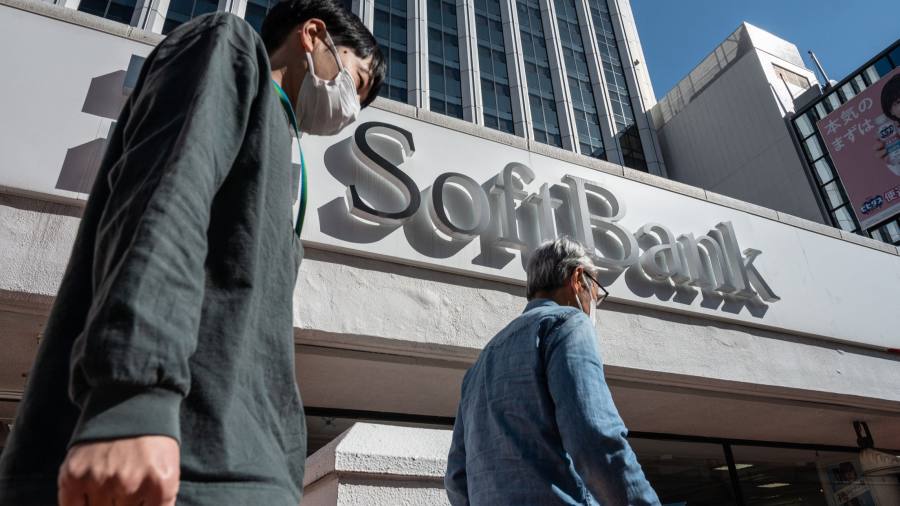Credit Suisse’s London High Court lawsuit against SoftBank has been thrown into doubt following the Swiss bank’s rescue by rival UBS, which counts the Japanese conglomerate as a client, according to people with knowledge of the relationship.
Since the takeover was completed last week, UBS’s top legal team has been assessing the numerous lawsuits that Credit Suisse is embroiled in to weigh the merits of pursuing them against the potential damage to its business interests and reputation.
The deliberations came as SoftBank began its defence in the case brought by Credit Suisse over $440mn of losses tied to Greensill Capital, accusing the Swiss bank of trying to shift the blame for its own failings.
Credit Suisse, which was forced to close $10bn of client funds two years ago after specialist finance firm Greensill imploded, launched formal proceedings against SoftBank in April as part of its long-running attempts to reclaim money on behalf of its wealthiest clients.
About 1,000 Credit Suisse clients were left with hundreds of millions of dollars of losses after investing in a suite of supply-chain finance funds tied to Greensill that the Swiss bank marketed as low risk.
Credit Suisse has alleged that SoftBank masterminded a financial restructuring of Katerra — a Californian construction company funded by SoftBank’s Vision Fund that was also a client of Greensill — that benefited the Japanese group at the expense of the Swiss bank’s clients.
“In an effort to deflect responsibility for its own failings — which Swiss regulators extensively and damningly documented — [Credit Suisse] is now claiming that the SoftBank defendants orchestrated a transaction in late 2020 that was designed to harm [Credit Suisse],” SoftBank’s lawyers wrote in their defence filing, which was lodged last week. “That is categorically false.”
The lawsuit centres on $440mn owed to the Swiss bank’s customers by Katerra, which went bankrupt following the collapse of Greensill.
Katerra had received the money via Credit Suisse’s supply-chain finance funds. Late in 2020, SoftBank agreed to provide an emergency cash injection into Greensill, which was intended to cover the debts at Katerra. The Financial Times has previously reported that the money never reached the Credit Suisse funds.
“The fact that the Greensill Group subsequently misused the funds for another purpose — which was not discovered by the SoftBank defendants until after the transaction was complete — does not make the SoftBank defendants liable for [the Credit Suisse fund]’s losses,” SoftBank’s defence states.
Credit Suisse has 21 days to respond to the SoftBank defence statement.
In February, Swiss financial regulator Finma concluded its two-year investigation into Credit Suisse’s failings around the collapse of Greensill and found there had been a “serious breach of Swiss supervisory law”.
Of the $10bn locked in the supply-chain funds when they closed, Credit Suisse has reclaimed $7.4bn, with the remaining assets much harder to recoup. It has stated that it could take up to 10 years to resolve the matter through a litany of lawsuits and insurance claims.
The bank’s state-orchestrated rescue by UBS has raised questions about whether its new owner will continue with the lawsuit, given its relationship with SoftBank, which is a client of its investment bank, according to two people.
Last year UBS was one of several banks involved in the sale of 213mn Alibaba shares as SoftBank raised as much as $22bn in cash by reducing its stake in the Chinese ecommerce giant.
Credit Suisse and UBS declined to comment.
Several other legal cases following on from the collapse of Greensill Capital are coming to a head.
This month, the FT reported that Lex Greensill, founder of Greensill Capital, and four former Credit Suisse bankers have been named as suspects in a Swiss criminal case that is due to be formally opened next week.
In a separate case, US-based private finance group White Oak has started legal action against Marsh for $143mn in relation to its work for Greensill, arguing the insurance broker failed to pass on crucial information regarding problems with the firm’s insurance cover.
Additional reporting by Kate Beioley in London
Read the full article here




